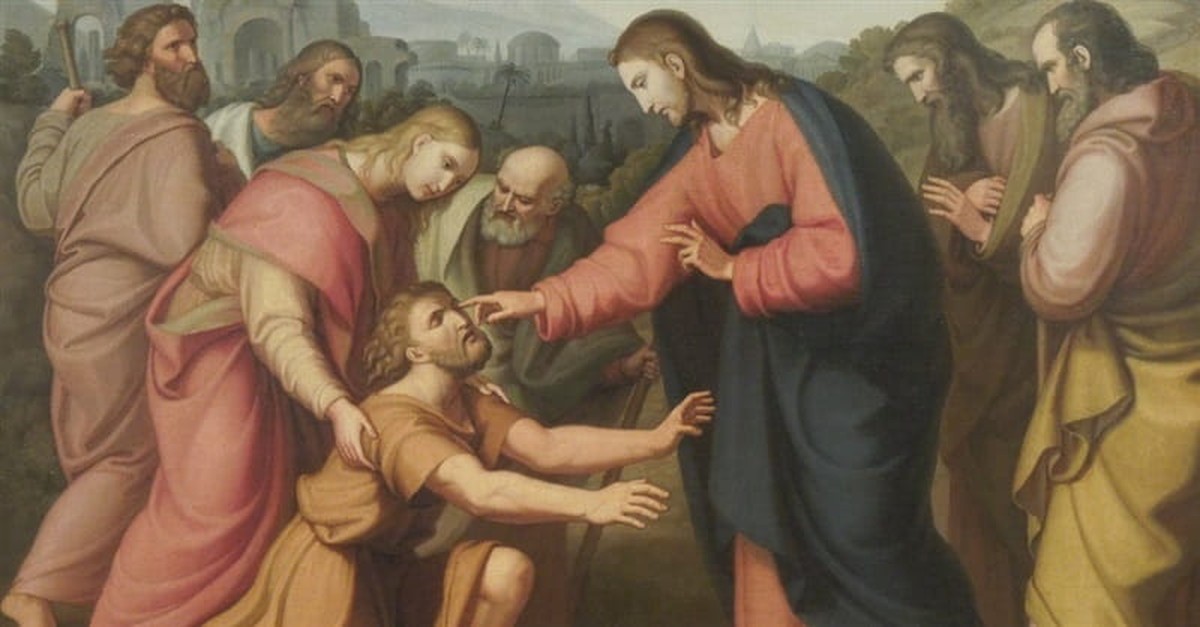There was a marvelous meditation in last month’s Magnificat (October 2021, p. 356-7) taken from a St. Josemaría Escrivà homily regarding the Bartimaeus passage in Mark. Escrivà (1902-1975) was a priest from Spain who founded the religious institution, Opus Dei, an organization where mostly lay people commit to a life of holiness. Here’s the Gospel passage first:
They came to
Jericho. And as he was leaving Jericho
with his disciples and a sizable crowd, Bartimaeus, a blind man, the son of
Timaeus, sat by the roadside begging. On
hearing that it was Jesus of Nazareth, he began to cry out and say, “Jesus, son
of David, have pity on me.” And many
rebuked him, telling him to be silent. But he kept calling out all the more,
“Son of David, have pity on me.” Jesus
stopped and said, “Call him.” So they called the blind man, saying to him,
“Take courage; get up, he is calling you.”
He threw aside his cloak, sprang up, and came to Jesus. Jesus said to him in reply, “What do you want
me to do for you?” The blind man replied to him, “Master, I want to see.” Jesus told him, “Go your way; your faith has
saved you.” Immediately he received his sight and followed him on the way. (Mk 10:46-52)
One certainly identifies with the blind man and we empathize with his predicament. Escrivà puts us into Bartimaeus’ shoes.
Don’t you feel the same urge to cry out? You who are also waiting at the side of the way, of this highway of life that is so very short? You who need more light, you who need more grace to make up your mind to seek holiness? Don’t you feel an urgent need to cry out, Jesus, son of David, have pity on me? What a beautiful aspiration for you to repeat again and again! I recommend that you meditate slowly on the events preceding the miracle, to help you keep this fundamental idea clearly engraved upon your minds: what a world of difference there is between the merciful Heart of Jesus and our own poor hearts! This thought will help you at all times, and especially in the hour of trial and temptation, and also when the time comes to be generous in the little duties you have, or in moments when heroism is called for.
Yes, meditate on Bartimaeus’ helplessness, and that the only power he has is to call on Him. That is us, today, here and now, in a desperate state with the only real power we have is to call on Him: Jesus, son of David, have pity on me. Escrivà continues to turn the screw on your Bartimaeus predicament:
Many of them rebuked him, telling him to be silent, as people have done to you, when you sensed that Jesus was passing your way. Your heart beat faster and you too began to cry out, prompted by an intimate longing. Then your friends, the easy life, your surroundings, all conspired to tell you: “Keep quiet, don’t cry out. Who are you to be calling Jesus? Don’t bother him.” But poor Bartimaeus would not listen to them. He cried out all the more. Our Lord, who had heard him right from the beginning, let him persevere in his prayer. He does the same with you. Jesus hears our cries from the very first, but he waits. He wants us to be convinced that we need him. He wants us to beseech him, to persist, like the blind man waiting by the road from Jericho. Let us imitate him. Even if God does not immediately give us what we ask, even if many people try to put us off our prayers, let us still go on praying.
So
when Escrivà puts us in Bartimaeus’ shoes, it’s not that we are transported to
Bartimaeus’ time. We are Bartimaeus in
our contemporary time. Imagine now our
Lord approaching you, and just as Bartimaeus can’t see Jesus, so too are you
blind to Him. Escrivà continues for the
climax:
And now begins a marvelous dialogue that moves us and sets our hearts on fire, for you and I are now Bartimaeus. Christ, who is god, begins to speak and asks, What do you want me to do for you? The blind man answers, Lord, that I may see. How utterly logical! How about yourself, can you really see? Haven’t you too experienced at times what happened to the blind man of Jericho? I can never forget how when meditating on this passage many years back, and realizing that Jesus was expecting something of me, I made up my own aspirations: “Lord, what is it you want? What are you asking of me?” I had a feeling that he wanted me to take on something new and the cry Master, that I may see, moved me to beseech Christ again and again. Lord, whatever it is that you wish, let it be done.
And so you ask Him, I want to see, and if you let Him touch your eyes, you can see Him. After this encounter, Bartimaeus followed Jesus all the way to Jerusalem to His Passion. In those moments you do see Jesus, when you feel His touch on your eyes, you can do nothing else but follow Him all the way.
This
was a moving meditation.



No comments:
Post a Comment